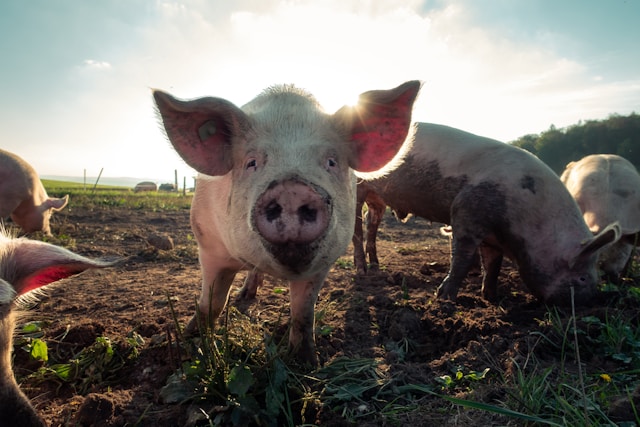Italy, a country renowned for its rich tradition of pork products, is experiencing one of the worst outbreaks of African swine fever (ASF) in decades, impacting a national industry valued at €8.2 billion and adding to concerns about increasing viral threats to animals.
Other European countries have seen smaller ASF outbreaks this summer, as the continent struggles to contain the threat, according to the World Organization for Animal Health (WOAH).
There were ASF outbreaks on 49 Italian pig farms, leading to the slaughter of more than 117,000 animals as of Sept. 11, fanpage.it reports. Italy’s total farm pig population is around 8.7 million.
Meanwhile, transport bans, especially in northern Italy where pig farming is concentrated, have resulted in over 700,000 pigs left unsold, significantly affecting farmers’ incomes and threatening the country’s famed prosciutto and sausage industries, the Financial Times reports.
Bans against importing Italian cured meats and hams are in place in China, Japan, Taiwan, Cuba, Mexico, Thailand, Uruguay, Brazil, Argentina, Peru, Serbia, and Canada, and other countries could soon join them, an expert tells fanpage.it.
This situation has led to heightened efforts to develop vaccines, as the virus continues to disrupt both the livelihoods of farmers and the broader agricultural economy. While vaccination holds the promise of long-term systemic protection against such diseases, the road to effective virus control remains complex.
Although ASF poses no threat to human health, its impact on pigs is devastating, with a nearly 100% mortality rate, according to a European Union fact sheet. Efforts to control its transmission have involved strict containment measures, but the virus continues to circulate across key agricultural regions.
A systemic response to viral threats is needed
The spread of ASF across Europe this summer raises a broader issue: the growing vulnerability of global agriculture to viral diseases.
Outbreaks of bird flu that have been devastating poultry farms have now begun to spread to dairy cattle. As viruses become more frequent and destructive, systemic solutions like vaccination are critical to ensuring the long-term sustainability of farming industries. Sometimes, however, farmers are reluctant to use vaccines, because they produce antibodies that are identical to infection in antigen tests and can prevent animals from being exported.
To complement vaccination efforts, other preventive measures are being explored.
When it comes to preventing ASF, these include better biosecurity practices on farms, more stringent monitoring of wild animal populations, and the construction of barriers to prevent the movement of infected animals, according to a WOAH report. However, these efforts require substantial financial and logistical support, which is often slow to materialize, leaving farmers vulnerable to continued outbreaks.
The most permanent solution would be a vaccine, but progress toward this goal has been slow and fraught with challenges. Unlike previous vaccines developed for human viruses like COVID-19, or even rabies in animals, ASF presents a unique challenge.
While Vietnam has approved a swine fever vaccine, skepticism remains about its safety and effectiveness, particularly in meeting the high standards required for use in the EU.
The European Commission acknowledges the limitations in current scientific capabilities to develop a safe and efficient vaccine against ASF, Euractiv reports.
As Reviriego Gordejo, head of unit at the Commission’s Directorate General for health and food safety (DG SANTE), told the European Parliament’s AGRI committee recently the ASF virus is resistant to conventional vaccination methods, leaving scientists struggling to find a safe and effective solution, Euractiv reports.
Until they find a solution, Italy’s pig farming and pork business, which employs roughly 50,000, remains under threat.














